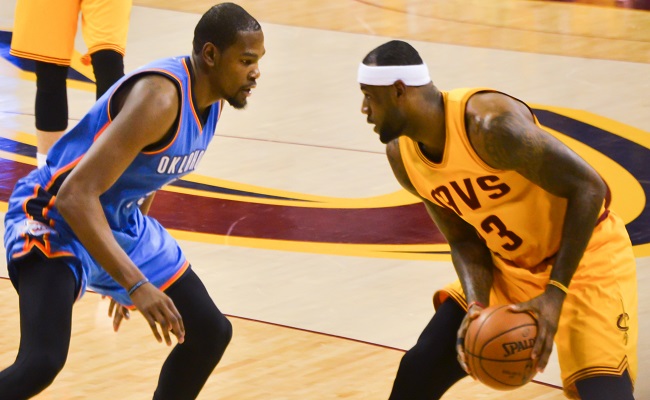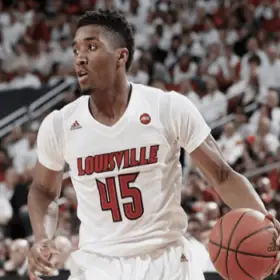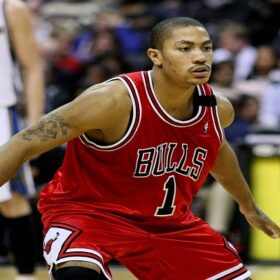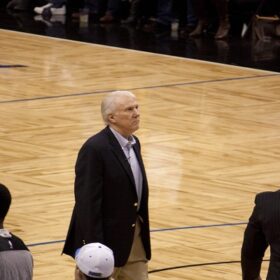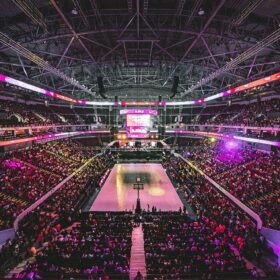Sometimes you get disappointed when you hear in the news that your favorite player from your favorite team is getting traded. You have no idea why this player is getting traded because on his stats, he is having a good season, and you ask yourself, why the hell are they trading him? Who makes the trading in a basketball team?
The general manager of a team is the one who usually decides which player he will trade with another NBA team. General managers are always deciding what’s best for their team. So if trading that best player you wanted will be the best decision for their team, then they are most likely to do it. Some players can also decide if he/she is going to leave the NBA team. Players can also demand a trade on their GMs. Their intention of asking for a team trade is caused by some of their personal reasons.
Trade is a powerful tool that every NBA team can benefit from, and every NBA team does this during the season or after the season ends. So today we are going to talk about how NBA trade and the free agency works. Let’s take a closer look at the deeper meaning of NBA trades and free agency. If you are ready, then let’s get started!
How NBA Trade Works?
Atleast two teams must be involved in an NBA trade to make the trade valid. Some theories say that the maximum limit of NBA teams involved in one trade is the number of teams in the league. It means that in a single NBA team trade, all NBA teams can participate. This scenario rarely happens in the NBA.
Each team that is involved in a trade must send something out and take something back. NBA teams can give and receive the following:
- Player Under Contract
- Future Draft Pick
- NBA Prospect Player
- Cash
Teams can trade cash for a player, but there are some restrictions when it comes to sending money. There is a limited amount of money a team can send out. Once a team reaches those limits, they can no longer be permitted to include cash in a deal until the following year.
If both teams agreed to a trade deal, then the trade will be considered a successful team trade. There are some rules that a basketball team should comply with so that the NBA team trade will be applicable. The regulations behind NBA trade is listed below:
NBA Trade Rules
Below are the important NBA trade rules that every NBA team needs to comply in order to have a successful trade.
1. Time Of Trade
The NBA teams can make trades between the start of the regular season until the NBA trade deadline. The trade deadline is always on the seventeenth Thursday of the season.
If the team is eliminated or did not make the playoffs, they can start trading again. They can only offer a trade to a team that has ended their season. For example, if the Lakers did not make the playoffs, and the Warriors did not make the playoffs too, both teams could offer a trade to each other because both team’s seasons are over.
2. Sign-And-Trade
A sign-and-trade is a trade made by teams that wanted their leaving player to compensate or bring some value to them before leaving. If a team knows that one of their stars is departing from the team next season, they will potentially sign him and trade him to another NBA team. Teams do this kind of trade so that they do not lose anything for letting this player go with another NBA team.
For a sign-and-trade deal to be valid, the following criteria must have complied:
- A free agent should be signed-and-traded by the team whom he finished the season
- If the player is a restricted free agent, he can’t be signed-and-traded after he signs an offer with another team
- NBA teams that will acquire a player from a sign-and-trade cannot be over the tax apron after the deal.
- A free agent player can’t be signed-and-traded while the regular season is ongoing
- Players that are free agents can’t be signed using the mid-level exception or any exception that doesn’t allow for a three-year contract.
- The veteran free agent receiving a designated veteran contract can’t be signed-and-traded
3. Extension-And-Trade
Players can choose to extend their contracts from their current team, or they can enter the free-agent. NBA teams that increase the player’s contract can choose to trade that player. They can only trade the extended contract player if the agreement has covered no more than three seasons, the salary in the first year of the extended term is no more than 105% of the earnings in the last year original term, and the annual salary increases are no more than 5% of the salary in the first year covered by the extended term.
If the player signs a contract extension for more than three years, higher than the required max first-year salary, or higher than the required max annual increase, then the team is not allowed to trade the player for a period of six months following the date of the extension.
If a team receives a player from a trade, they can’t sign him a contract extension for a period of six months following the date of the trade because that would violate the limitations for an extension-and-trade transaction.
4. Salary Cap
The salary cap is the limit to the total amount of money that teams are allowed to pay their players. A team below the salary cap may acquire one or two players as long as they do not exceed more than $100,000. If they exceed the salary cap, then an exception is required. An exception is a tool that allows teams to exceed the salary cap to re-sign their free-agents and trade players. Since most NBA teams are always over the salary cap, exceptions are applied to make a trade successful.
For more rules about NBA trade, just check this NBA site to gather more information.
How The NBA Free Agency Works?
First of all, what is a free agency? Every NBA player has a contract to sign, and those contracts eventually come to an end. Players become free agents if their current contract expires, giving them the right to sign with another team. There are two kinds of free agents in the NBA. The two types are restricted free agents, and the second one is the unrestricted free agents. Let me discuss both types of free agents below:
- Unrestricted free agent: An unrestricted free agent is free to sign in any team he wants.
- Restricted free agent: An restricted free agent can also sign in any team he wants like an unrestricted free agent. The difference is that the team he’s under contract with can re-sign him again by matching the offer of the other team.
Let me give you an example below:
VanVleet is an unrestricted free agent at the end of the season 2020. It means VanVleet can sign in any team he wants, and the Raptors can’t do anything about it. Another example is Brandon Ingram. Ingram is a restricted free agent at the end of the season 2020. It means that if Ingram agrees to the deal with another team, the Pelicans can choose to match that offer to keep him in New Orleans.
To make one of their players a restricted free agent, the team must submit a qualifying offer to the player between the day after the last game of the NBA finals and June 29. If a player agrees to the proposal, their contract is extended for one-year and becomes an unrestricted free agent the following year. If the player refuses the offer, he becomes a restricted free agent.
A player has the right to resign with his team for more money than what is offered by another team if he earned the bird rights. Bird rights are also known as a qualifying veteran free agent that can be attained by a player once he plays for three seasons without getting traded or getting waived by his team.
Conclusion
Trades are the best strategy used by GM’s to give their team a chance to win a championship. Even though trading a player can hurt a fan, team managers are still doing it for the good of their team.
Star players from the worst team are lucky when they enter free agency because there is a good chance that a good team could potentially sign them. That is why sometimes players tend to be unrestricted free agents rather than being restricted free agents.
What NBA trades shocks you the most? Feel free to share your story in the comment section below!

